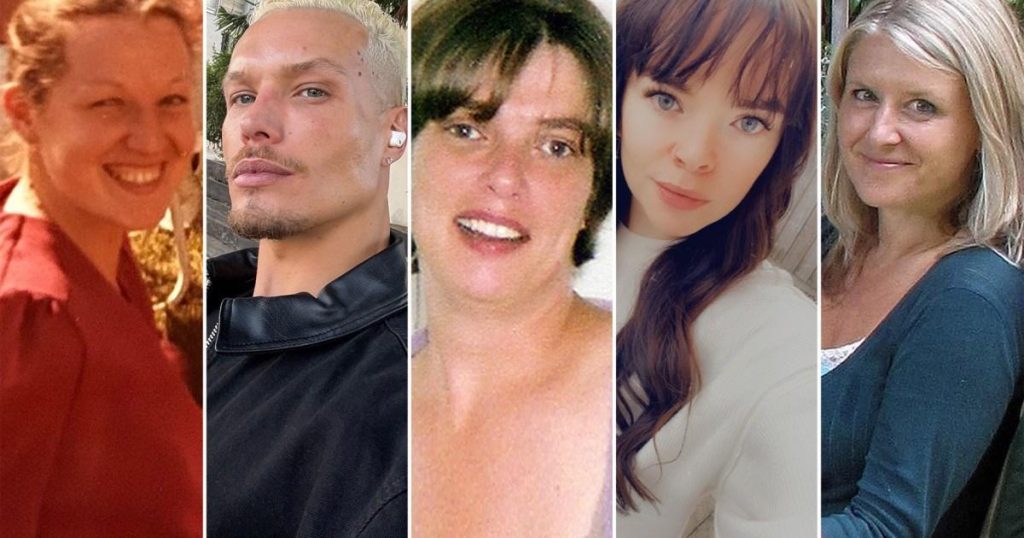The Devastating Impact of Domestic Homicide on Children: Forgotten Victims
The tragic stories of Roann Court and Daniel Wing underscore the profound and long-lasting consequences of domestic homicide on children. Roann, at the tender age of 15, witnessed the brutal murder of her mother, Claire Marshall, by her abusive ex-boyfriend. The traumatic experience left her with PTSD, anxiety, and hypervigilance, requiring years of therapy to achieve a semblance of mental well-being. Similarly, Daniel Wing’s life was irrevocably altered when his mother, Tina, was murdered while battling postnatal depression. He spent three decades grappling with unresolved grief and fear, compounded by the lack of support and the ongoing mystery surrounding her unsolved case. These experiences highlight the urgent need for comprehensive support systems tailored to the unique needs of children bereaved by domestic homicide.
The psychological impact of witnessing such violence, particularly the murder of a parent, is immense. As Katherine Cavallo, a Systemic Family and Couple Psychotherapist, explains, the proximity to the incident directly correlates with the severity and duration of the trauma. Moreover, these children often have a history of exposure to domestic abuse, making the homicide a culmination of pre-existing trauma rather than an isolated event. The Femicide Census and Killed Women, organizations dedicated to tracking and supporting victims of domestic violence, reveal alarming statistics: a significant percentage of femicides are perpetrated by men with a history of abuse, and a majority of domestic homicide victims are women killed by their current or former partners. This underscores the systemic nature of the problem and the urgent need for preventative measures.
The stories of Claire Marshall and Joanna Simpson exemplify the tragic patterns of domestic violence culminating in femicide. Joanna, a successful businesswoman and mother of two, endured coercive control, isolation, and intimidation before being murdered by her estranged husband just days before their divorce was finalized. This highlights a particularly dangerous period for women seeking separation, as statistics show a high percentage of murders occurring within months of separation. The Joanna Simpson Foundation, established in her memory by her mother and a close friend, champions the cause of children impacted by domestic violence and homicide, recognizing them as the "forgotten victims." They advocate for consistent support and agency for these children, who often face instability in foster care and lack adequate resources to process their trauma.
The lack of consistent support for bereaved children is a critical issue. As Diana Parkes and Hetti Barkworth-Nanton, founders of the Joanna Simpson Foundation, point out, the current system leaves children vulnerable to inconsistent care and multiple placements in foster homes. The trauma of losing a parent is compounded by the instability and lack of specialized support to navigate their grief and trauma. Ellen Milazzi, Head of the National Homicide Service at Victim Support, emphasizes the long-term impact of such loss, with the emotional and physical scars often lingering for a lifetime. The need for specialized services that address the complex needs of these children, including trauma-informed therapy and consistent care, is paramount.
Daniel Wing’s experience further illustrates the systemic failures in providing adequate support to families affected by domestic homicide. His family’s struggle to keep him in their care, coupled with their fear of seeking counselling due to societal stigmas and concerns about intervention from authorities, highlights the multiple barriers faced by families in these situations. The lack of sensitivity from authorities and the absence of proactive support services left them feeling isolated and vulnerable. This points to the necessity of a more compassionate and comprehensive approach to supporting families, acknowledging their grief and empowering them to navigate the complex aftermath of a homicide.
The media’s portrayal of these cases also plays a significant role in shaping public perception and impacting the bereaved families. Roann Court’s experience of reading articles that focused on the perpetrator rather than her mother’s life demonstrates the insensitive and often re-traumatizing nature of media coverage. This underscores the need for responsible reporting that prioritizes the victims and their families, avoids sensationalizing the crime, and provides accurate and respectful portrayals of the deceased. Small acts of respect, such as using positive photos and highlighting the victim’s life and personality, can make a significant difference for grieving families. Roann’s desire to use her experience to help other children who have lost parents to homicide, by pursuing a degree in psychology and counselling, is a testament to the resilience and transformative power of finding purpose in the face of tragedy. Daniel Wing’s message of hope, encouraging others to honor their lost loved ones by living fully and pursuing their dreams, offers a powerful reminder of the importance of finding strength and purpose amidst grief.


